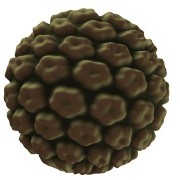 Photo: Getty Images
Photo: Getty Images
According to the Centers for Disease Control and Prevention as well as other sources, eight out of 10 individuals who are sexually active will have an active HPV (human papillomavirus) infection at some time in their lives.
One may think that similar to a bacterial infection, an HPV infection will go away and you won’t have to worry about it going forward. Unfortunately a virus acts differently than bacteria and there is no medication that can cure an individual of HPV once it has been contracted.
The virus itself produces very few symptoms initially and can become dormant for months, years and even decades when it can later emerge to produce quite significant symptoms and in some cases go on to produce invasive cancer.
Most people are familiar to some extent with the fact that HPV causes cervical cancer. Very few are aware that it also causes vaginal, vulvar, anal, and penile cancers and now has also been shown to cause oral cancers as well.
HPV is the number one sexually transmitted infection (STI) with approximately 20 million Americans infected and 6.2 more acquiring the infection each year. Having an STI is not something one typically brings up in conversation. On the contrary, it often evokes feelings of guilt and shame which stifles any potential for productive conversation on the issue, unlike other medical conditions which are freely discussed such as heart disease, diabetes and even breast and colon cancers.
There is a simple test available which can detect the strains of high risk HPV--those likely to cause precancerous lesions and cancer--which your doctor can perform to determine whether or not you have the virus.
Digene, a subsidiary of QIAGEN, developed the original HPV test over ten years ago and despite newer competition, is still the most widely performed HPV test with the most research data available. To obtain more information on this test, please check out their website at thehpvtest.com.
The vaccine which is available to protect against the two most aggressive high risk strains of HPV (capable of causing cancer) and two low risk strains (which cause genital warts) is available through Merck. It is available to males and females ages 9 to 27, however it is not recommended as often as it should be. While the vaccine is administered in a series of three injections over six months, statistics show that only 30 percent of those beginning the series actually complete it.
Studies done comparing bankruptcy rates to cancer diagnoses have shown that bankruptcy filings for cancer patients are almost double the average in the first year after diagnosis. This information was presented at the recent annual meeting of the American Society of Clinical Oncologists in Chicago.
Given the significant ramifications which accompany a diagnosis of cancer-- physical and psychological as well as financial--is it not worth taking the time to ensure your protection?
http://www.healthfinder.gov/news/newsstory.aspx?docID=653696
http://www.thehpvtest.com/
http://www.gardasil.com/
http://www.cdc.gov/hpv/
http://www.cdc.gov/vaccines/vpd-vac/hpv/
Reviewed June 14, 2011
Edited by Alison Stanton





Add a Comment1 Comments
Most people living with HPV may feel lonely and shamed. But you are MORE than your STD, so give yourself a chance to love again.
The exclusive community STDdatings-com helps you find trusted people to talk to, share medical information, get help or advice. Never feel lonely again!
June 16, 2011 - 7:06amThis Comment